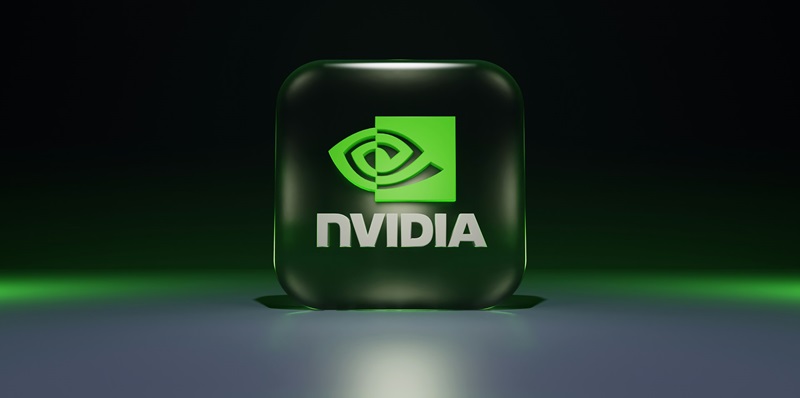NVIDIA has reached a monumental milestone, becoming the most valuable company in the world with a market cap exceeding $3.3 trillion as of June 18, 2024. This milestone underscores NVIDIA’s success within the artificial intelligence (AI) sector, driven by its robust GPU (Graphics Processing Unit) technologies. One of the pivotal quotes by NVIDIA’s CEO, Jensen Huang, “The More You Buy, The More You Make,” exemplifies the company’s strategy and long-term vision for AI and computing.
The Ascent of NVIDIA’s GPU Technologies
Widespread Adoption and Technological Leadership
NVIDIA’s ascension is intricately linked to the widespread adoption of its GPUs for AI applications. The success of its Hopper series GPUs, including highly acclaimed models like the H100 and H200, has cemented NVIDIA’s reputation as a leader in AI hardware. These GPUs gained considerable traction amidst a surge of interest in AI, driven by transformative technologies including ChatGPT and other generative AI models. The ability of Hopper series GPUs to deliver unprecedented computational power has made them a cornerstone for AI research and applications, thereby solidifying NVIDIA’s market position.
The Hopper series has not just been about raw power but has also emphasized efficiency and scalability, making it suitable for both small-scale academic research and large-scale commercial applications. This adaptability has opened up avenues in various sectors such as healthcare, automotive, and financial services. In healthcare, for example, NVIDIA’s GPUs are facilitating groundbreaking research in medical imaging and diagnostics by enabling faster and more accurate data processing. The consistent performance and reliability of these GPUs have led to their adoption in critical applications, further elevating NVIDIA’s status in the tech world.
Future Prospects and Innovations
Future prospects for NVIDIA look exceptionally promising with the announcement of the next-generation Blackwell GPU architecture tailored for data centers. Expected to deliver significant performance improvements, Blackwell GPUs are poised to set new benchmarks in data processing speeds and energy efficiency. This architecture aims to address the increasing demands of data-intensive applications, making it an ideal choice for enterprises seeking robust AI solutions. Additionally, NVIDIA’s subsequent series, codenamed Rubin, is anticipated to debut in 2026, offering even more advanced features and capabilities.
NVIDIA’s ongoing commitment to innovation ensures it remains at the cutting edge of AI hardware technology. The company’s ability to consistently deliver groundbreaking products exemplifies its forward-thinking approach. As industries increasingly rely on AI to optimize operations and analyze large datasets, NVIDIA’s technological advancements will play a critical role in shaping the future landscape of AI applications. This relentless pursuit of innovation not only keeps NVIDIA ahead of its competitors but also drives the broader tech industry towards new possibilities and advancements.
Competitive Landscape and Strategic Market Positioning
Outpacing Competitors
NVIDIA’s dominance in the AI hardware space has seen it outpace formidable competitors like Intel and AMD. Despite their combined efforts to challenge NVIDIA, the company’s superior technology and innovative product lines have kept it at the forefront. This success can be attributed to NVIDIA’s deep understanding of market needs and its ability to deliver high-performance, scalable solutions. The Hopper series, for instance, has outperformed competing products in critical metrics such as computational power and energy efficiency, ensuring that NVIDIA stays ahead in the fast-evolving AI market.
The company’s strategic partnerships and acquisitions have further strengthened its market position. By collaborating with leading tech firms and research institutions, NVIDIA has been able to integrate cutting-edge technologies into its product offerings. These collaborations also provide NVIDIA with valuable insights and feedback, enabling continuous improvement and adaptation to emerging trends. The result is a dynamic and resilient company that is well-equipped to maintain its leadership in the competitive AI hardware industry.
Broader Industry Dynamics
The broader industry dynamics also highlight NVIDIA’s strategic market positioning. Increased demand for TSMC’s 3nm chips due to the rise of AI applications has prompted potential price hikes from various tech giants, including NVIDIA, Apple, AMD, and Qualcomm. This scenario underscores the critical importance of advanced semiconductor technology in driving AI advancements. NVIDIA’s proactive engagement with international partners, as evidenced by events like the Computex keynote, where CEO Jensen Huang emphasized Taiwan’s pivotal role in the company’s success, further demonstrates NVIDIA’s strategic foresight.
These engagements not only highlight the importance of global collaborations in tech innovation but also reinforce NVIDIA’s commitment to remaining at the cutting edge of AI technology. The company’s ability to anticipate and respond to market shifts, coupled with its relentless innovation, positions NVIDIA as a central player in the ongoing AI revolution. As AI continues to permeate various sectors, NVIDIA’s contributions will undoubtedly shape the future of technology on a global scale.
Conclusion
NVIDIA has achieved a historic milestone by becoming the most valuable company globally, reaching a market capitalization of over $3.3 trillion as of June 18, 2024. This remarkable achievement highlights the company’s dominant position within the artificial intelligence (AI) sector, largely fueled by its advanced GPU (Graphics Processing Unit) technologies. NVIDIA’s GPUs have become essential tools in AI development, powering everything from data centers to autonomous vehicles.
NVIDIA’s CEO, Jensen Huang, encapsulated the company’s strategy and long-term vision with the statement, “The More You Buy, The More You Make.” This philosophy reflects NVIDIA’s commitment to driving innovation and growth in AI and computing markets. The company’s focus on scalable solutions and cutting-edge technology ensures it remains at the forefront of the industry. As AI continues to evolve, NVIDIA’s contributions are likely to drive further advancements, cementing its role as a leader in both technology and market value.

